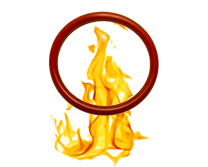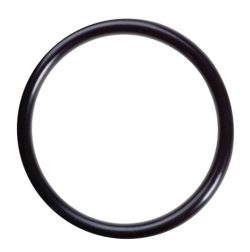High-Temperature O Rings
High-Temperature O Rings – Manufactured From Approved Materials
For more than 50 years, M Barnwell Services has provided High-Temperature O Rings to top Energy, Compressor Pump, and Valve, Chemical Processing, and Semiconductor companies worldwide. As one of the UK’s biggest independent fluid seal stockists and distributors, our customers can trust that they’ll receive the right product for their needs.
Our proficient team manages the entire production process, from prototyping and testing to final part manufacturing. Additionally, we offer specialised certification upon request.
If you would like more information about our range, download our catalogue, or contact a team member.
High-Temperature O Ring Materials
Heat stands as a significant factor in compound deterioration. When selecting the ideal High-Temperature O Ring, it’s crucial to also weigh factors like necessary chemical resistance. For applications exceeding 150°C, potential materials to consider include FKM, FFKM, ACM, HNBR, VMQ, FVMQ, AFLAS®, PTFE, and FEP.
- Viton™ (FKM)
– Withstands up to 205°C
– All-round material with excellent resistance to oils, greases, and fuels at high temperatures.
– Impervious to mineral oil, ASTM oils No.1 and No.2, non-flammable hydraulic fluids, and more.
– Compatible with various hydrocarbons.
– Not suitable for brake fluids, ammonia solvents, strong acids, or superheated steam. - Polyacrylate (ACM)
– Service temperature of 150°C (177°C intermittent), lower than Viton™ (200°C).
– Poor resistance to brake fluids.
– Economical alternative to Viton™, resistant to mineral oils (gearbox, engine, transmission fluids). - Hydrogenated Nitrile (HNBR)
– Maximum temperature of 150°C.
– Handles automotive oils, gases, aliphatic hydrocarbons, hydraulic fluids, and dilute acids.
– Recommended for automotive sealing requiring abrasion resistance.
– Not compatible with chlorinated hydrocarbons, polar solvents, strong acids, and limited brake fluid resistance. - AFLAS® (TFE/P)
– Withstands up to 232°C.
– Versatile for chemicals in automotive sealing.
– Suitable for brake fluids (DOT 2, 3, 4, 5), motor oils, coolants, lubricants, and transmission fluids.
– Tolerates amines, acids, and bases.
– Incompatible with aromatic fluids, ketones, and chlorinated hydrocarbons. - Silicone (VMQ)
– Withstands up to 250°C. Certain variants can withstand even higher temperatures, up to 320°C.
– Frequently used for UV, ozone, and weather exposure protection.
– Inappropriate for chemical, hot water, and dynamic applications.
– The fluorinated form, Fluorosilicone (FVMQ), offers improved fuel and mineral resistance, however, it has reduced hot air tolerance.
Universally Resistant Compounds
Two standout material categories excel in chemical and temperature resistance: Perfluoroelastomers (FFKM) and PTFE. Both contain high molecular weight of carbon and fluorine, imparting strong polymer durability. Yet, FFKM and PTFE differ significantly in mechanical attributes. PTFE is a rigid thermoplastic, while FFKM falls into the thermoset elastomer classification. Thermoplastics can be melted and reshaped, while thermosets maintain their initial form. FFKM essentially combines FKM and PTFE, uniting elastomeric features with remarkable chemical resilience and heat resistance.
- PTFE
– Covers an extensive temperature span from -200°C to 250°C.
– Entirely chemically inert, granting unparalleled chemical resistance. It remains unaffected by all known acids, alkalis, and solvents.
– Exceptionally low coefficient of friction
– Unlike flexible materials, PTFE is notably hard. This contributes to its high compression set, meaning it has minimal or no memory, such as being prone to denting. - FEP
– FEP’s maximum temperature resistance is 204°C.
– FEP is a member of the PTFE material group. It’s an extrudable PTFE variant, sharing similar qualities already outlined.
– It can encapsulate standard elastomeric cores like silicone or Viton™.
– Particularly effective in static applications with aggressive media, such as pumps.
– FEP seals exhibit chemical and heat resistance akin to PTFE. They provide enhanced flexibility compared to PTFE.
Why Do High-Temperature O Rings Fail?
When subjected to temperatures beyond the seal material’s maximum rating, O Rings can experience hardening and brittleness. This can lead to cracking, leakage, and failure. Additionally, loss of elasticity often leads to compression set issues.
M Barnwell Services’ High-Temperature Seals:
- MBMS1108 High Purity FFKM:
– Operates at 310°C.
– Specifically tailored for Semiconductor applications.
– Enhances yields, and minimises process contamination.
– Remarkable plasma resistance, enduring mechanical performance. - MBMS0214 High-Temperature FFKM:
– Withstands high temperatures of up to 260°C.
– Resistant to rapid gas decompression (RGD).
– Suitable for intense pressure conditions like ultra-deepwater HP/HT applications (18,000 psi, 177°C and above).
– Well-suited for Oil and Gas industry needs.
Explore additional high-temperature seals by contacting our team or visiting the FFKM O Ring Page for further details.
Applications By Industry:
- Automotive
– Engine components.
– Exhaust systems.
– Turbochargers. - Aerospace and Defence
– Jet engines.
– Hydraulic systems.
– Fuel Systems. - Oil and Gas
– Downhole drilling.
– Wellhead equipment.
– Pipelines - Chemical Processing
– Reactors.
– Pumps.
– Valves.
– Gaskets. - Semiconductor
– Wafer processing.
– Vacuum systems.
– Plasma etching. - Food and Beverage
– High-temperature processing and sterilisation. - Pharmaceutical
– Autoclaves.
– Processing equipment and sterilisers.
More Industry-Specific Extreme Seals
You Are In Safe Hands
As a reliable partner to global OEM manufacturers, M Barnwell Services ensures quality products and an exceptional service experience. With £5.1 million in sealing inventory and five UK branches strategically positioned, we’re primed to meet and surpass your needs.
Viton™ is a trademark of The Chemours Company FC, LLC. M Barnwell Services does not manufacture Viton™ products. E & OE. M Barnwell Services endeavours to make sure that all content is correct. The information has been gained from manufacturing partners.

